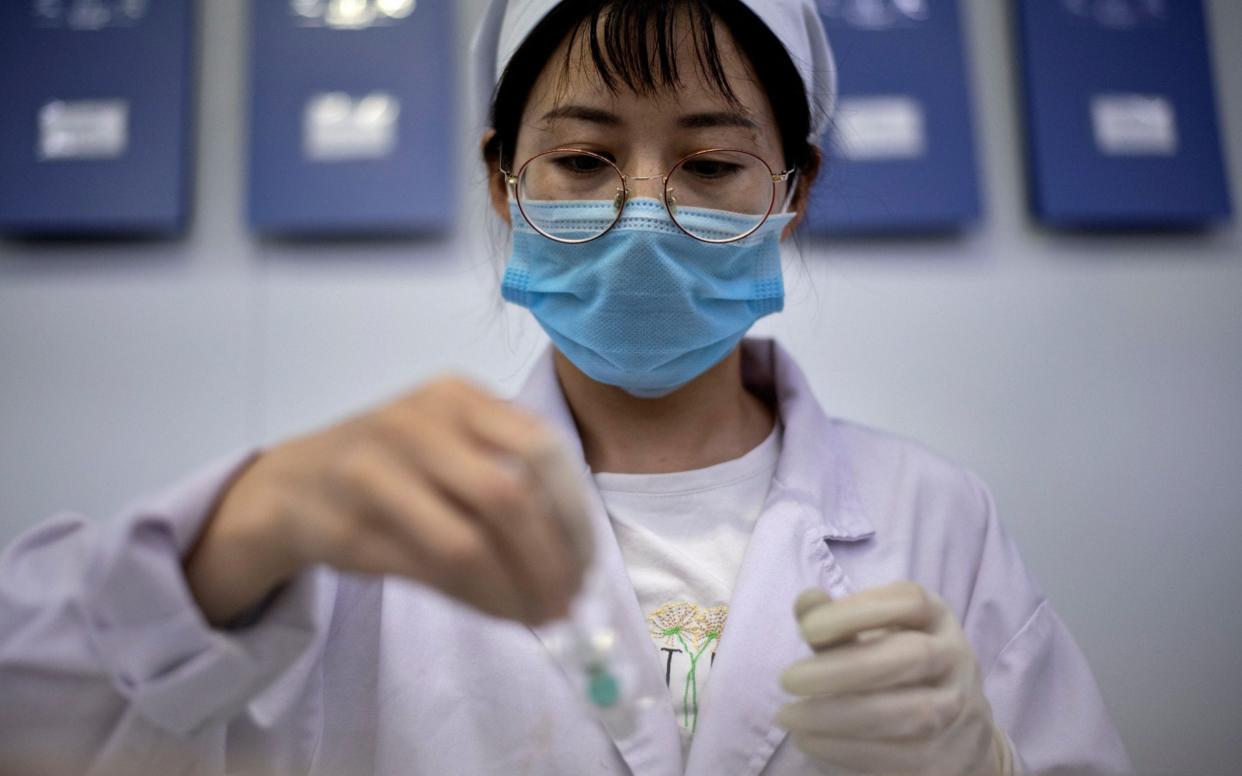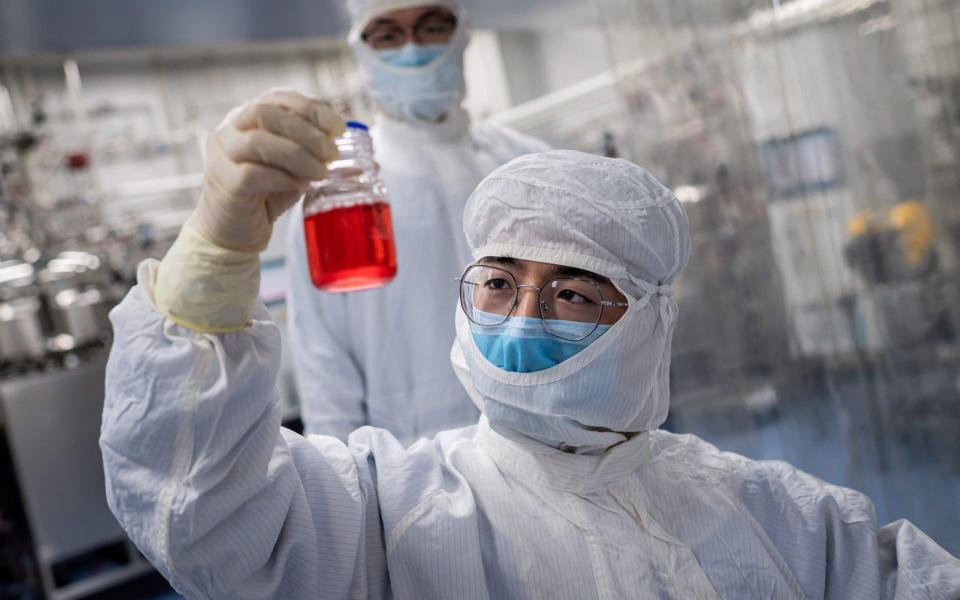China emerging as winner in vaccine race as jabs reach phase-three trials

China is pulling ahead in what could be the final leg of the global coronavirus vaccine race, with four of seven possible candidates in last stage human trials – more than any other country.
However, some are concerned about the quality of the vaccines and that they are being used to gain political leverage.
Beijing is so confident in its homegrown inoculations that authorities have been administering vaccines for more than a month before clinical studies conclude, authorities revealed this week.
People deemed to be at higher risk of infection, such as border officials and state-owned enterprise employees working overseas, have received jabs after the government approved them for emergency use, according to state media. Soon, transport and service workers are also expected to be vaccinated.
“Giving untested vaccines means that there is no guarantee that they are going to work, so people could wrongly assume that they are inoculated when they are not,” said Nicholas Thomas, a health security expert and professor at the City University of Hong Kong. “In doing so, they could engage in behaviour that has a higher risk....[and] unwittingly put other people at risk.”
“The reason why vaccines go through phase 3 trials is to reduce the short and long-term risk to the individual,” he said. “Giving vaccine shots without this knowledge places individuals at significant personal risk.”
The Chinese government has provided sparse details on which vaccines are being given to people, and how many have been vaccinated, leading to concerns participation may be forced and not voluntary.
Last week, Papua New Guinea cancelled a flight from China filled with arriving passengers believed to have received a coronavirus vaccine over worries of the unknown health impact to the local population.
In general, “it’s better for a community if there’s more people vaccinated, so there’s less risk of an outbreak of Covid,” said Ben Cowling, division head of epidemiology and biostatistics at Hong Kong University’s School of Public Health. “At the same time, just having some vaccinated people wouldn’t be enough to mean that social distancing could be relaxed.”
Governments are under increasing pressure to find a lasting solution for the devastating pandemic that has swept the world, infecting nearly 25 million and killing more than 830,000. Authorities are also keen to get economies back on track as quarantine measures, though effective in containing the virus, are beginning to impact growth.
“Covid is causing economic damage every week, every month, so the sooner we can start using vaccines, the better,” said Mr Cowling.
For China, there are additional benefits. Coming up with a successful vaccine would help to deflect anger at home and abroad over its pandemic cover-up, while delivering a blow to US Donald Trump’s “warp-speed” plans for a vaccine. Competition is heating up as well with Russia.
The Chinese government “sees science and technology as tools of national greatness,” said Yangyang Cheng, a scientist and postdoctoral fellow at Cornell University.
Winning the vaccine race would underscore government propaganda about how “it’s really a hostile world out there, and we, as in the Chinese people, have to rely on ourselves”.
It would also give China a new tool for diplomacy and potentially bring more allies into the fold. Indeed Beijing has already vowed “to give priority” to a number of Southeast Asian nations – the Philippines, Cambodia, Laos, Myanmar, Thailand and Vietnam – if it develops a vaccine.
Canada, engaged in a longstanding diplomatic spat with Beijing, had to halt plans to partner in late stage clinical trials as vaccine doses, stalled in Chinese customs, never even arrived.

Whether the world will trust a Chinese vaccine remains to be seen.
China doesn’t have a great track record. Rushed exports of medical equipment and protective gear this year have turned out to be faulty. The country has also before been plagued with a number of health and food safety scandals, including expired vaccines and tainted baby formula that sickened 300,000 infants and killed at least six in 2008.
If early inoculations in China end up failing, experts say that could impact global public confidence in the efficacy of coronavirus vaccines in general.
While drug regulators have the power to decide whether or not to approve a Chinese vaccine for use in their own countries, they could come under pressure to fast-track a successful candidate on the market, regardless of who developed the treatment.

Countries, though, that China has agreed to conduct advanced tests with include Brazil, Lebanon, Bangladesh, Saudi Arabia, Peru, Morocco, where regulatory hurdles for vaccines to become available may be less stringent than in Western countries like the US or UK.
Still, experts are optimistic with so many vaccine candidates in advanced testing, which could eventually yield a few options. Over time, it may also emerge that some vaccines are better suited for certain parts of the population; for instance, one type of vaccine could be more effective or suitable for children versus adults, said Mr Cowling.
While results of phase three trials won’t be available for another few months, early orders for vaccines are already coming in as nations seek to secure access for their citizens.
“The vaccine development process is like a marathon,” said Mr Cowling. “Some vaccines are nearing the end of the journey, but it’s unclear if they will finish. Some of these vaccines may not pan out; hopefully they will.”
While the coronavirus “does represent a significant threat to humanity,” infections can be controlled with social distancing and other preventative protocols, said Mr Thomas. “It is just that these have economic and political costs.”
“The urgency narrative being put out by Chinese, Russian and American officials is more about national prestige and avoiding such costs than about the comprehensive testing of a new vaccine.”

 Yahoo News
Yahoo News 
